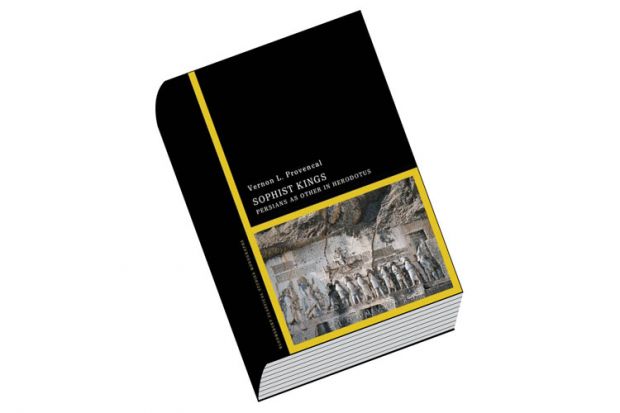Robert Graves’ poem The Persian Version is an intelligent, perceptive work that challenges and threatens the Classical tradition to which Graves himself had contributed in no small way. It asks the reader to question how wars are reported and urges us to avoid the glorification of conflict. In the poem, the battle of Marathon (490BC) is seen from the bona fide Persian perspective. It was not, it transpires, the first and greatest struggle of democracy over tyranny that the Greeks had claimed; for the Persians, Marathon was but a “trifling skirmish”. The reworking of the Marathon narrative is given veracity because Graves calls his Persians “truth-loving”.
Here, of course, Graves the Classicist nods to Herodotus’ description of Persian boys’ education focusing on three basic tenets: they were taught to ride, to shoot with the bow and to tell the truth. Unknown to Graves, but apparent to us in more recent times, largely through the careful decipherment of ancient Iranian texts and a fuller scholarly engagement with the advanced civilisation that created them, the concept of “truth” (or Arta in the Old Persian language) was deep-seated in the ancient Persian psyche. “Truth” meant service to the god Ahuramazda and, by extension, loyalty to the Persian king. The question is, when Herodotus wrote that the Persians were committed to truthfulness, was that an informed fact?
Vernon Provencal aims to offer an answer by looking at Herodotus’ engagement with the Persians in the Histories, created in the later part of the 5th century BC. His is a complex argument, centred on his view that Herodotus was completely au fait with the Persian – Ahuramazdan – doctrine of Arta and that he “interpreted this ideology as imperialist and despotic propaganda concealing the sophistic ideology that he attributes to the Persians as the truth behind the lie”.
I have sympathy with what Provencal is attempting to do. I, too, believe that Herodotus was familiar with the Persian world, at least the western part of the Empire where he was born. He must have been exposed to Persian propaganda distributed throughout Asia Minor in a series of languages, including Greek, and to the fact that Persian propaganda included statements on the concept of truth and its hated counterpart, the lie (Drauga): “Darius the king proclaims: I acted according to Truth…You, who shall be king hereafter, be firmly on your guard against the Lie; the man who shall be the follower of the Lie – punish him well if you think ‘May my country be secure’.”
Provencal is right in noting that Herodotus often expresses an intricate notion of what might be termed “cultural relativism” and that (as scholars before Provencal have pointed out) he does seem to have been influenced by the Sophists and the ways they distinguished between nomos (law or custom) and physis (nature). Herodotus clearly displays sophistic tendencies when he suggests, as he often does in his ethnographic observations, that certain characteristics are deeply entrenched in human nature (physis). But contrary to the Sophists, Herodotus thought, pragmatically, that man-made customs (nomoi) could be used to explain many situations and character traits; these nomoi were not products of nature, nor were they universally adopted; every society had its own set of laws and customs. And Herodotus claimed to know a thing or two about a wide range of societies.
So was Herodotus playing such a sophisticated (sophist-icated, get it?) game with the Persians, as Provencal would have us believe? Was he really filtering their religious ideology through some kind of sophistic prism? That he was alive to the original Persian version of truth I have no doubt, but in spite of some engaging chapters on the essential “Otherness” of the Histories’ Persians, and a very good, sensible and sizeable section on Achaemenid notions of kingship and religion, Provencal’s lengthy thesis fails to wholly convince.
Lloyd Llewellyn-Jones is professor of ancient Greek and Iranian studies, University of Edinburgh, and author of King and Court in Ancient Persia 559-331 BCE.
Sophist Kings: Persians as Other in Herodotus
By Vernon L. Provencal
Bloomsbury, 344pp, £75.00
ISBN 9781780936130
Published 30 July 2015




